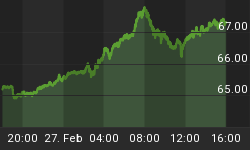After citizens of San Diego voted overwhelming against raising taxes to cover deficits, the Voice of San Diego reports Mayor Proposes Eliminating City Pensions
As time runs down in San Diego Mayor Jerry Sanders' tenure, his proposals to solve the city's financial crisis are becoming more drastic. This summer, he embraced a tax hike. Friday, he proposed 401(k)-style retirement accounts for most new city employees, and in turn, eliminating their pensions.
Staring him and everyone else in the face is a $70 million-plus ongoing deficit, one that neither a tax increase or a pension elimination will fix. The tax hike won't work because voters said no. The pension elimination, which also needs voter approval, won't save any money for years and wouldn't go on a ballot until next year at the earliest.
Sanders has two more years to solve the financial problem he was elected to fix. Friday, he recommitted to the task.
"I won't pass the structural deficit on to the next mayor," Sanders said.
Details of how the new 401(k) plan would work are sparse. Sanders said it would exempt police officers and firefighters. He didn't say how much it would save, just millions.
While I wholeheartedly endorse the idea of eliminating defined benefit pension plans for public employees, the mayor simply refuses to admit the truth. You cannot balance the budget responsibly unless and until police and fire unions aid in the effort.
Politicians Padding Their Own Pensions
Please consider Reform to Politicians' Pensions Could Go Further
The U-T ran the numbers last week. To fund council members' pensions, $29,700 must be paid into the retirement fund annually. Now, they contribute $2,400 toward that amount and taxpayers pay the rest. With the Prop. D reform, the amount would increase to $6,800. If the cap is eliminated, which the council can do, the council members would be paying nearly $15,000 each year.
Politicians own pension contributions rarely reached the radar until Prop. D came along over the summer. Since then, it's become an example of the effectiveness of Councilman Carl DeMaio, the most outspoken Prop. D opponent, in hammering on an issue. He has been discussing the politician pension cap for months, and it has gained traction.
No One Speaks for the Taxpayer
The biggest problems with public pensions is no one speaks for the taxpayer. The sad state of affairs is that mayors buy votes of the teachers, police, and fire unions to get reelected. Then they create outlandish pension plans for themselves, funded by taxpayers.
Voters in San Diego finally had enough. Citizens Rejected Proposition D by a margin of 63-37.
San Diego voters gave a stiff rebuke to city leaders Tuesday by roundly rejecting a proposed sales tax increase, setting up a difficult choice for Mayor Jerry Sanders on whether to follow through on his threat of devastating cuts to public safety if Proposition D failed.
The ballot measure would have increased the city's sales tax by a half-cent on the dollar for the next five years, but it fell well short of topping the 50 percent threshold for passage. The measure was receiving 37 percent support with nearly two-thirds of the returns in at 12:30 a.m.
Amid sweeping anti-tax sentiment that propelled Republicans into office across the nation, local voters also rejected a property tax for San Diego city schools, a utility tax in Chula Vista and a fee for state parks.
Public Union Concessions a New Trend
Meanwhile please note the start of a trend. City after city is starting to address these issues. They have to. The economy finally forced it. Expect to see major concessions by public unions in big and small cities alike as taxpayers and voters everywhere have had enough. Voters are fed up with a national unemployment rate close to 10%, with 14 million unemployed, with seeing their property taxes go up, even as the value of their homes collapse, topped by public union pension guarantees the average person can only begin to dream about.
It is high time mayors of cities big and small stand up for taxpayers and not for unions who contribute to their election campaigns. The inequities must stop, and they will. Mayors who do not understand the economics and the anger of voters will soon be out of office.
Although I applaud the mayor's move in the right direction (finally), there is much more to this story that shows how disingenuous mayor Jerry Sanders is. I will do a followup post shortly that will prove it.















